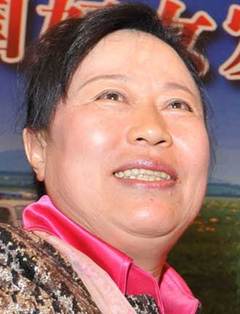Liu Zhijun associate charged
Business owner linked to former railway minister accused of graft
A businesswoman linked to the corruption case against China's former railway minister has been charged with bribery and illegal business activities, sources with the Beijing prosecution authority confirmed on Saturday.
 |
|
Ding Shumiao, a businesswoman involved in former railway minister Liu Zhijun’s case, has been charged with bribery and illegal business activities. |
The No 2 Beijing Intermediate People's Court has accepted the case, but a trial date has not been announced.
Ding intervened in bidding for dozens of railway projects through railway ministry staff members and was reported to be engaged in illegal business operations valued at 178.8 billion yuan ($29.21 billion), the statement said.
That amount of money was a quarter of the total railway investment nationwide in 2010 (707 billion yuan) and also close to the total financial revenue of Shanxi province in 2010 (181 billion yuan).
Starting from a small business of selling eggs, the 58-year-old Ding established a business empire after more than 30 years of struggle. In the 1980s, she began to invest in the coal business and then rail transport, according to media reports.
Her businesses started to thrive after she met Liu Zhijun, who was appointed railway minister in 2003 and was known as the driving force behind the country's high-speed railway network. Liu received a suspended death sentence in July for taking bribes and steering contracts to associates.
From 2007 to 2010, Liu helped 23 businesses recommended by Ding win more than 50 railway construction contracts, prosecutors said, adding that she then gave 49 million yuan to Liu. She also offered sexual favors to Liu by arranging an unidentified number of women for him, according to prosecutors.
With Liu's assistance, Ding and her relatives amassed 4 billion yuan in profits from 2004 to 2010.
Ding's lucrative business net was exposed in 2010 after the auditing authority found a State-owned enterprise paid nearly 100 million yuan to Ding's company. Investigators later found that she was closely connected to Liu. The finding led to Liu being placed under disciplinary inquiry.
A number of officials in the railway ministry were also charged with corruption and abuse of power.
Zhang Shuguang, a former senior official at the ministry, was charged on Tuesday with accepting more than 47 million yuan in bribes over 11 years. The next day, Su Shunhu, another high-level official at the ministry, stood trial in a Beijing court on charges of receiving more than 24 million yuan in bribes.
"In the past, those who offered bribes to officials would only be given light punishment or even exempted from conviction," said Wu Hui, an associate professor specializing in governance at the Party School of CPC Central Committee. "Now, through Ding's case, the government shows it is serious in addressing the corruption problem from its root."
He added it is important for all of society to cultivate the notion that those who offer bribes should feel shame and be punished.





















